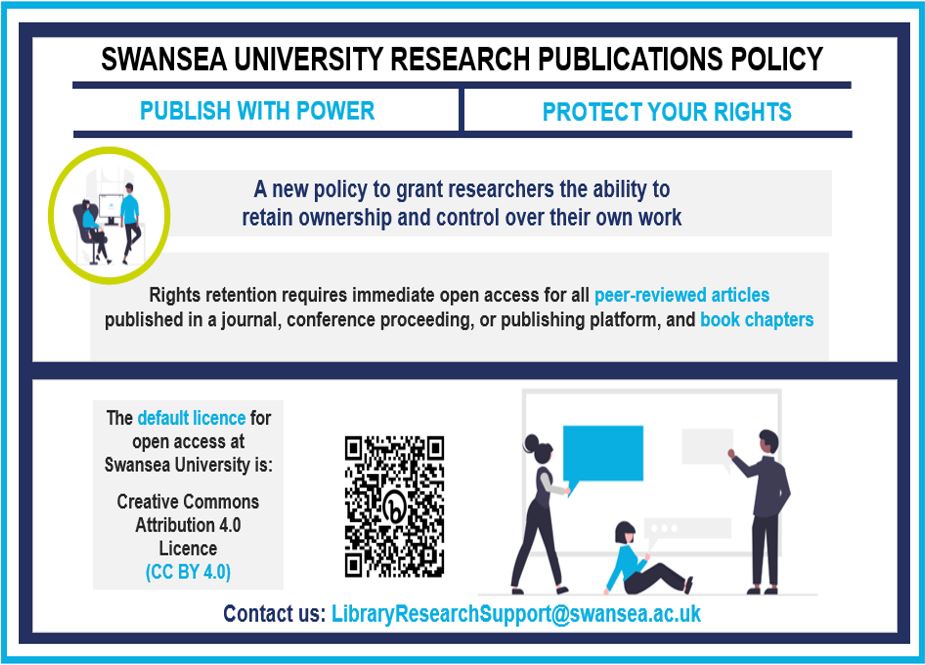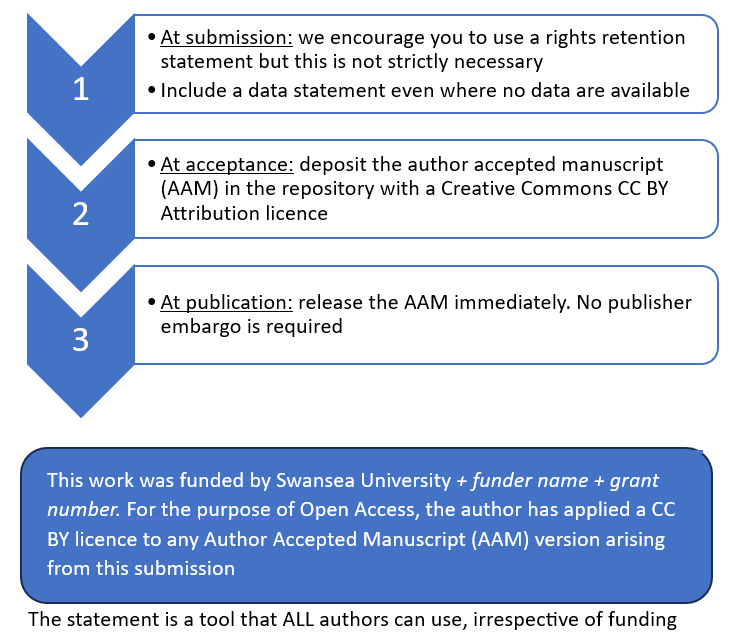University Research Week 2023 – Policy Launch Events
Monday 11/09/2023, 10.30-12.00 GH014, Bay Campus
Reserve Your Place
Thursday 14/09/2023, 10.30-12.00 Wallace 218, Singleton Campus
Reserve Your Place
Project Sponsor: Biagio Lucini, Deputy Pro-Vice Chancellor for Research Culture
Swansea University has updated its Research Publications Policy as part of a commitment to open and reproducible research. The University is dedicated to disseminating its research and scholarship as widely as possible. From July 2023 the policy supports authors to retain more intellectual property rights in their research outputs. The ability to retain rights is a key benefit for researchers, and the University is at the forefront of bringing this policy into action as the first Welsh institution to adopt a rights retention policy.
Our new Research Publications Policy grants Swansea researchers the right to make a copy of the Author Accepted Manuscript (AAM) immediately Open Access at publication via the repository (Cronfa), using a Creative Commons Attribution License (CC BY). By making articles immediately available with no publisher embargo, researchers can ensure their work reaches a wide audience, increasing visibility and potential impact.
The policy applies to:
- In-scope funded and unfunded peer reviewed research articles (published in either a journal, conference proceeding or publishing platform).
- Book chapters.
Articles which are not eligible for paid Open Access at acceptance can be deposited in the repository (Cronfa), without embargo and with a CC BY license using the green self-archiving Open Access route. Articles made gold Open Access via an article payment charge or ‘Read and Publish’ agreement are unaffected. The University recognises that there may be situations where it is difficult to follow this policy completely and it is possible to opt out of the requirement for open access or the assignment of a CC-BY licence. This may make your output funder non-compliant.
Full details of the new Research Publications Policy are available via libguides.swansea.ac.uk/Research-Publishing/Publication-Policy along with support videos and FAQs.
The Library Research Support team will be presenting the policy changes at various research events over the summer, but please do get in touch if you have any questions for us. LibraryResearchSupport@swansea.ac.uk
#RightsRetentionFAQs, #Creative Commons, #Benefits for Researchers












 Image credit: @IOPPublishing
Image credit: @IOPPublishing
